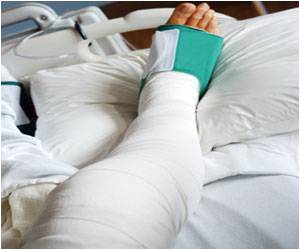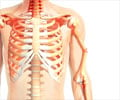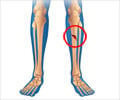Exercising, using proper footwear, taking supplements and other lifestyle changes may help older patients who are at the risk of fractures, a new study find

Dr. Sale's study, published online in the prestigious journal Osteoporosis International, looked at patients over 65 who participated in the Osteoporosis Exemplary Care Program at St. Michael's Fracture Clinic. Research participants were interviewed about their perceived fracture risk, recommendations they received about their bone health, results of bone density tests and any lifestyle or behavioural changes they made since their last fracture.
All but one participant appeared to understand they had low bone mass and were at risk of a future fracture, but many were confused about the significance of bone density. Many said they didn't want to think about the possibility of a future fracture and felt they had little control over risk factors such as age – yet they all engaged in a number of daily behavioural strategies to manage their fracture risk. Most were concerned about being careful, such as using handrails or wearing proper shoes.
But they also said they were considering or taking prescribed medications, were exercising more, eating a healthy diet and taking supplements or using walking aids or devices.Dr. Sale said she believes the results of her study are in part due to the Osteoporosis Exemplary Care Program at St. Michael's that includes a coordinator who educates and follows up with patients.
Source-Eurekalert














